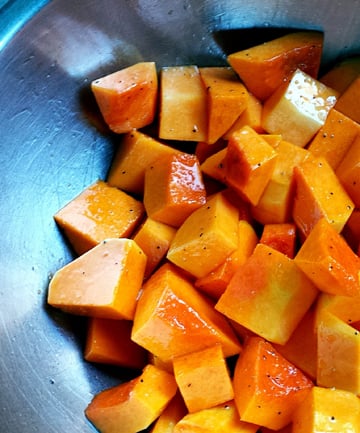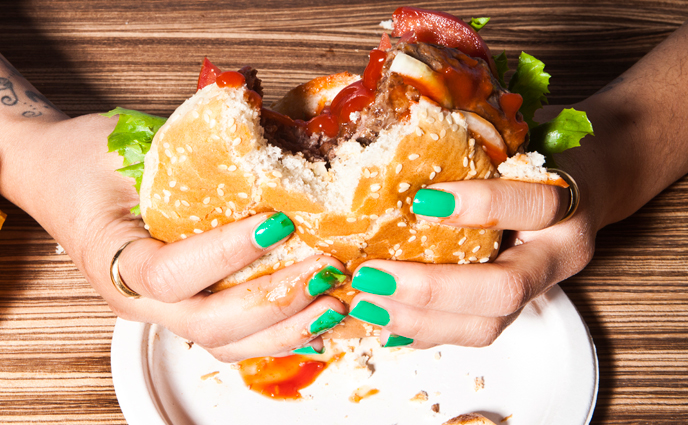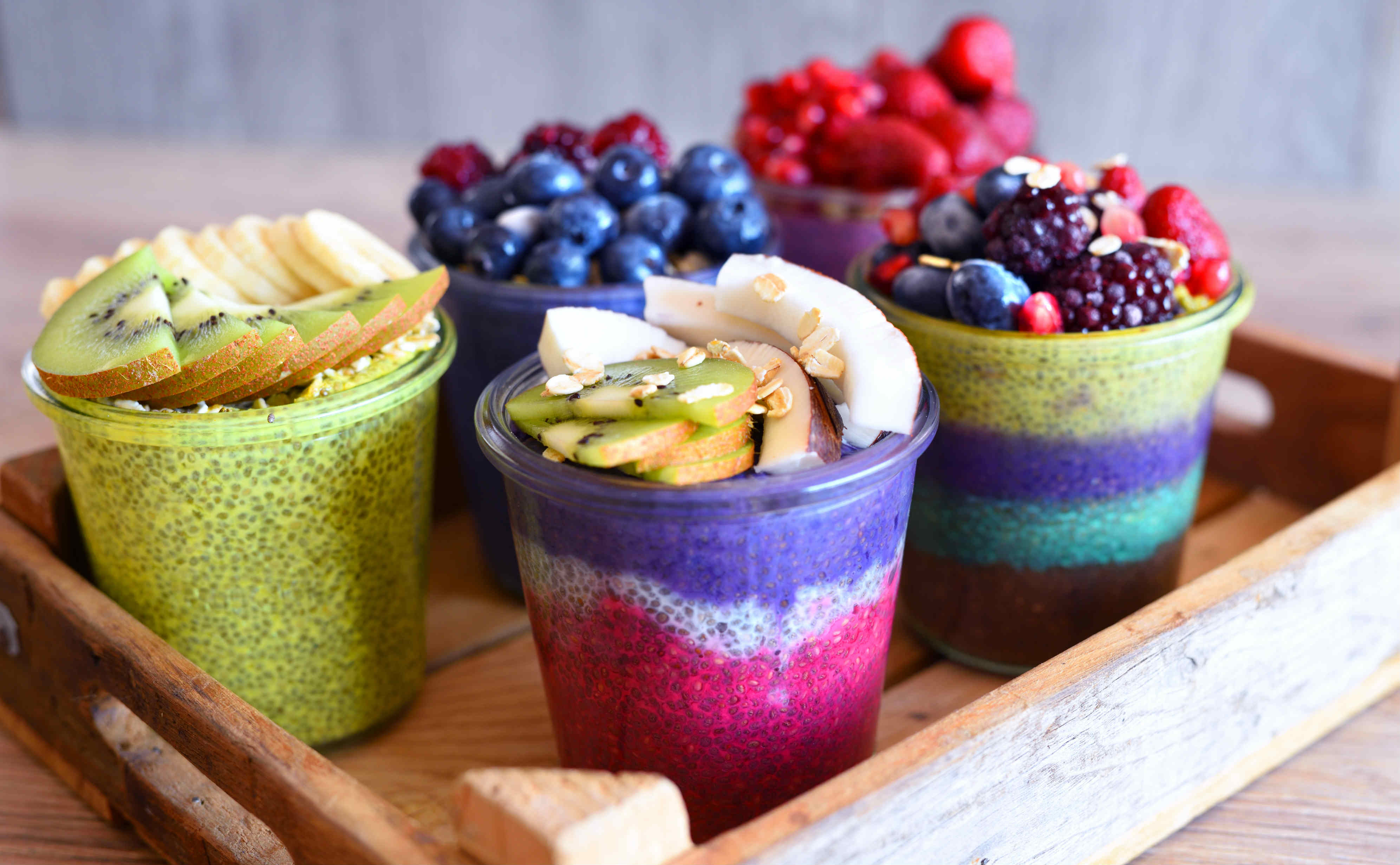Walnuts are an excellent source of omega-3-fatty acids, which are also found in fish. So, if you're not big into fish, you'll definitely want to pile walnuts into your salads or grab a handful on the go to help add shine back into your hair. "Walnuts also contribute to a younger and smoother skin complexion and may help to make you look younger in the process," says Martinez.
Image via Ekaterina Smirnova/Getty
Image via Ekaterina Smirnova/Getty
For that desirable dewy glow as fall temperatures plummet, be sure to have your fair share of sweet potatoes, which are full of beta-carotene, vitamin D and anthocyanins. "These nutrients work hard in our body to neutralize oxidative stress and age-related damage to our cells," explains Poon. "Sweet potatoes are also great for keeping the skin hydrated because they are rich in potassium and pantothenic acid." In addition to eating sweet potatoes, she recommends applying mashed sweet potato topically as a mask for immediately moisturizing effects.
Image via Julia Murray/EyeEm/Getty
Image via Julia Murray/EyeEm/Getty
Sweet and savory tasting at the same time, butternut squash isn't only a delicious fall ingredient, it's also great for your skin. "Butternut squash contains a lot of vitamin C, which studies have linked to healthy skin," says Williams. "That's why you see vitamin C in a lot of beauty products, like serums." She recommends enjoying butternut squash as often as you can when it's in season (during the fall). "Typically 1/2 cup is a good serving size for women," she adds.
Image via Kate-Lyn Brucato/EyeEm/Getty
Image via Kate-Lyn Brucato/EyeEm/Getty
Another nutrient-packed seed that's generally harvested in October is sunflower seed, which provides a great source of vitamin E to help moisturize and soften skin. "Acting as an antioxidant, vitamin E also helps eliminate free radicals that cause damage to skin," adds Bente. She recommends a hearty serving of 1/2 cup sunflower seeds, in their shells, which is only about 130 calories and provides more than 35 percent of your daily vitamin E requirements.
Image via Sirinate Kaewma/EyeEm/Getty
Image via Sirinate Kaewma/EyeEm/Getty
Beans are not only good for your heart — they're good for your skin, too. Since they're a great source of protein, beans and other legumes, such as lentils and peas, help repair cells damaged by free radicals. "The legume protein breaks down during digestion into amino acids, which support the faster repair and regeneration of collagen and skin cells," says Martinez. He recommends consuming at least one serving of legumes on a daily basis year-round.
Image via HSR/Getty
Image via HSR/Getty









